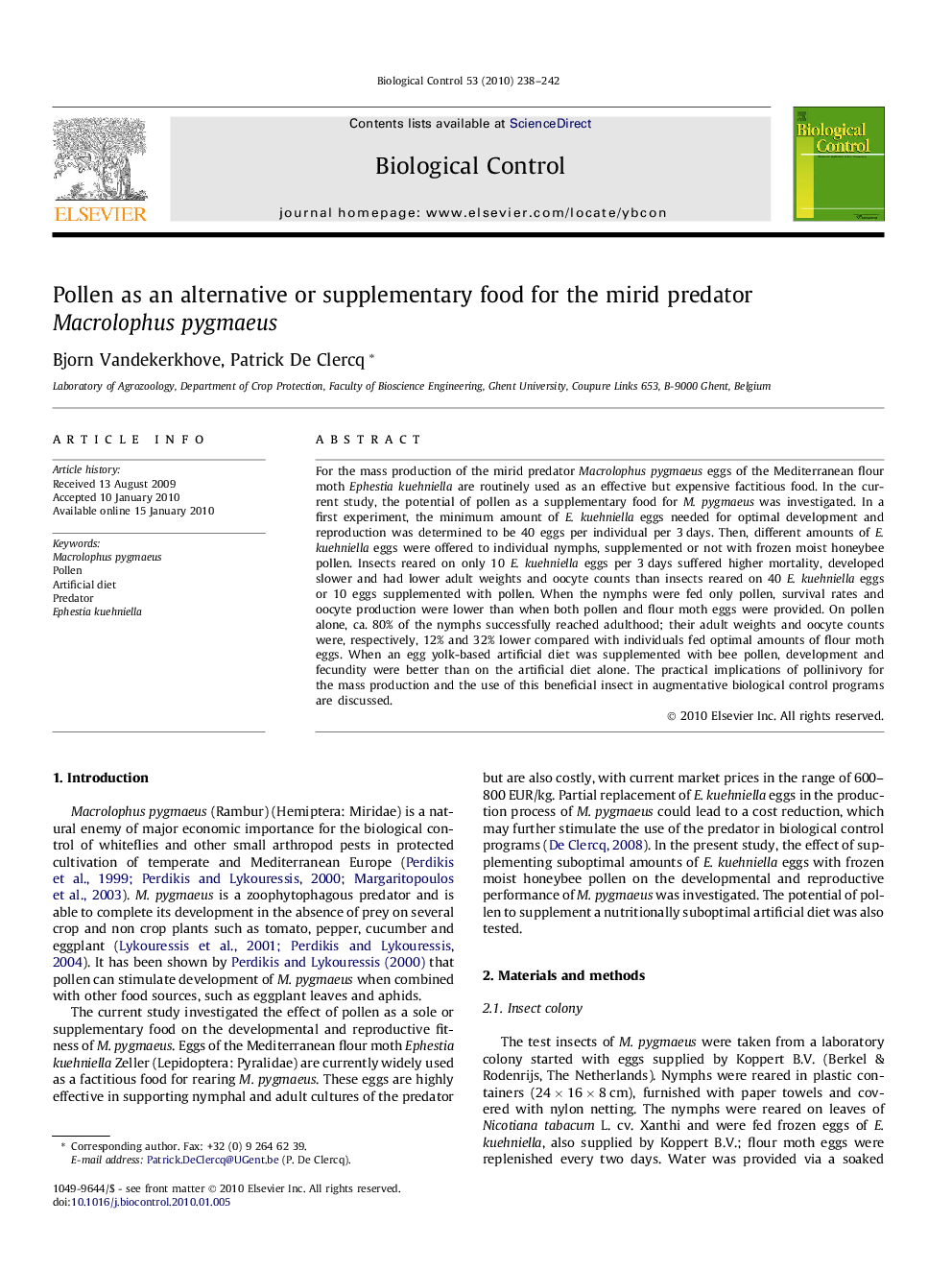| کد مقاله | کد نشریه | سال انتشار | مقاله انگلیسی | نسخه تمام متن |
|---|---|---|---|---|
| 4504483 | 1321095 | 2010 | 5 صفحه PDF | دانلود رایگان |
عنوان انگلیسی مقاله ISI
Pollen as an alternative or supplementary food for the mirid predator Macrolophus pygmaeus
دانلود مقاله + سفارش ترجمه
دانلود مقاله ISI انگلیسی
رایگان برای ایرانیان
کلمات کلیدی
موضوعات مرتبط
علوم زیستی و بیوفناوری
علوم کشاورزی و بیولوژیک
علوم زراعت و اصلاح نباتات
پیش نمایش صفحه اول مقاله

چکیده انگلیسی
For the mass production of the mirid predator Macrolophus pygmaeus eggs of the Mediterranean flour moth Ephestia kuehniella are routinely used as an effective but expensive factitious food. In the current study, the potential of pollen as a supplementary food for M. pygmaeus was investigated. In a first experiment, the minimum amount of E. kuehniella eggs needed for optimal development and reproduction was determined to be 40 eggs per individual per 3Â days. Then, different amounts of E. kuehniella eggs were offered to individual nymphs, supplemented or not with frozen moist honeybee pollen. Insects reared on only 10 E. kuehniella eggs per 3Â days suffered higher mortality, developed slower and had lower adult weights and oocyte counts than insects reared on 40 E. kuehniella eggs or 10 eggs supplemented with pollen. When the nymphs were fed only pollen, survival rates and oocyte production were lower than when both pollen and flour moth eggs were provided. On pollen alone, ca. 80% of the nymphs successfully reached adulthood; their adult weights and oocyte counts were, respectively, 12% and 32% lower compared with individuals fed optimal amounts of flour moth eggs. When an egg yolk-based artificial diet was supplemented with bee pollen, development and fecundity were better than on the artificial diet alone. The practical implications of pollinivory for the mass production and the use of this beneficial insect in augmentative biological control programs are discussed.
ناشر
Database: Elsevier - ScienceDirect (ساینس دایرکت)
Journal: Biological Control - Volume 53, Issue 2, May 2010, Pages 238-242
Journal: Biological Control - Volume 53, Issue 2, May 2010, Pages 238-242
نویسندگان
Bjorn Vandekerkhove, Patrick De Clercq,